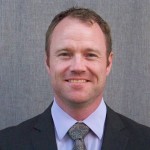Clinic Director
 Timothy Long, MDiv
Timothy Long, MDiv
Licensed Marriage and Family Therapist (MFC47459)
Licensed Professional Clinical Counselor (LPCC1152)
National Certified Counselor (718883)
Certified Reintegrative Therapist™
Servant-Hearted Therapy Innovator
Tim Long, LMFT completed both his Master of Divinity and Master of Counseling at Covenant Theological Seminary. Tim is the director of this clinic in Beverly Hills, CA where he and his staff help couples, individual adults, teenagers, and families through a wide variety of challenges, including marriage or relationship crisis, sexual struggles, addictions, depression, anxiety, obsessive-compulsive disorder, and recovery from childhood abuse and neglect. Tim’s counseling style is intensive, affect-focused, and attachment-centered. His three greatest professional passions are integrating faith with psychotherapy, equipping clergy and religious leaders to minister to the emotionally hurting in their communities, and training young therapists to become excellent and Christ glorifying soul care providers.
How to Choose a Therapist
There are so many therapists and therapeutic styles out there, it can be a little daunting to choose one and know he or she is right for you. Here are some questions you can ask a therapist in your initial phone call or first session in order to evaluate him or her:
- How do you believe people change?
- What does a session with you look like?
- What do you want me to do if therapy is bothering me or if it does not seem to me to be working?
- I am a Christian. (Or list your belief system). How do you counsel when faith is important to a client?
 Just as important as WHAT a therapist says is HOW the therapist says it. When you hear their answers, ask yourself, “Does this person sound compassionate, considerate, and loving?” and “Does this person sound professional?” If the therapist does not feel right, trust that feeling.
Just as important as WHAT a therapist says is HOW the therapist says it. When you hear their answers, ask yourself, “Does this person sound compassionate, considerate, and loving?” and “Does this person sound professional?” If the therapist does not feel right, trust that feeling.
Never be afraid to ask a therapist to explain what he or she is trying to do. This will help you get the most out of any therapy experience.
If you ask one of our therapists at Kainos Christian Therapy, here is the answer you will get:
- How do you believe people change?
People change by the power of the Holy Spirit in the light of the Gospel of the Kingdom of God realized by faith in the person and work of Jesus Christ. This Spirit empowered process has two parts: examining our hearts and obeying God’s commands or, as I call them, feeling and dealing. People change for the better when they are feeling and dealing. People change for the worse when they are not feeling, not dealing, or both. I invite people to change for the better by helping them to recognize when they are not feeling and/or not dealing and then training them to move toward feeling and dealing. - What does a session with you look like?
An individual’s therapy session with me starts with a client bringing in a current-life problem. We then process his/her feelings about the problem through emotion focused work, make sense of the problem by using the resulting emotions to connect the problem with past experiences, look at the resulting emotions in the context of the therapeutic relationship to provide a corrective emotional experience, and then apply what we have learned toward a solution for the original problem.A couple’s session with me starts with a couple bringing in a current-life conflict. We then recreate the conflict to observe the interactional patterns both partners fall into and the emotions behind those patterns. Then we correct the pattern. To do this I coach the clients through having a positive interaction. Our goal is to foster a secure attachment where both partners are most likely to be able to feel and deal. - What do you want me to do if therapy is bothering me or if it does not seem to me to be working?
If a client is experiencing any negative feelings toward me, I want them to tell me immediately so I can understand what is going on and we can work toward a solution. - I am a Christian. How do you counsel when faith is important to a client?
I approach therapy from a biblical world and life view. That means that I start with a biblical view of God and a biblical view of man and use that as a lens through which I evaluate secular counseling theory and practice. When a client shares my faith I do not hesitate to give biblical backing for my approach when asked and when we wrap up the session I will often show how what was revealed in the session corresponds to biblical truth.
